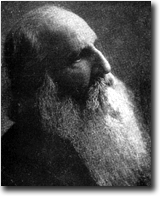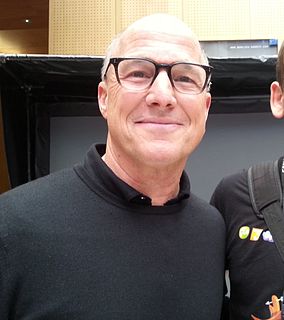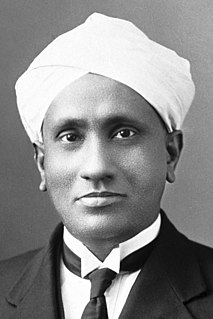A Quote by Albert Einstein
To be sure, it is not the fruits of scientific research that elevate a man and enrich his nature, but the urge to understand, the intellectual work, creative or receptive.
Related Quotes
All the lies and evasions by which man has nourished himself civilization, in a word is the fruits of the creative artist. It is the creative nature of man which has refused to let him lapse back into that unconscious unity with life which characterizes the animal world from which he made his escape.
The responsibility for the creation of new scientific knowledge - and for most of its application - rests on that small body of men and women who understand the fundamental laws of nature and are skilled in the techniques of scientific research. We shall have rapid or slow advance on any scientific frontier depending on the number of highly qualified and trained scientists exploring it.
The biographies of great artists make it abundantly clear that the creative urge is often so imperious that it battens on their humanity and yokes everything to the service of the work, even at the cost of health and ordinary human happiness. The unborn work in the psyche of the artist is a force of nature that achieves its end either with tyrannical might or with the subtle cunning of nature herself, quite regardless of the personal fate of the man who is its vehicle.
It must be for truth's sake, and not for the sake of its usefulness to humanity, that the scientific man studies Nature. The application of science to the useful arts requires other abilities, other qualities, other tools than his; and therefore I say that the man of science who follows his studies into their practical application is false to his calling. The practical man stands ever ready to take up the work where the scientific man leaves it, and adapt it to the material wants and uses of daily life.
Although I know of no reference to Christ ever commenting on scientific work, I do know that He said, "Ye shall know the truth, and the truth shall make you free." Thus I am certain that, were He among us today, Christ would encourage scientific research as modern man's most noble striving to comprehend and admire His Father's handiwork. The universe as revealed through scientific inquiry is the living witness that God has indeed been at work.
My personal attitude toward atheists is the same attitude that I have toward Christians, and would be governed by a very orthodox text: "By their fruits shall ye know them." I wouldn't judge a man by the presuppositions of his life, but only by the fruits of his life. And the fruits - the relevant fruits - are, I'd say, a sense of charity, a sense of proportion, a sense of justice. And whether the man is an atheist or a Christian, I would judge him by his fruits, and I have therefore many agnostic friends.
By Liberty I understand the Power which every Man has over his own Actions, and his Right to enjoy the Fruits of his Labour, Art, and Industry, as far as by it he hurts not the Society, or any Members of it, by taking from any Member, or by hindering him from enjoying what he himself enjoys. The Fruits of a Man's honest Industry are the just Rewards of it, ascertained to him by natural and eternal Equity, as is his Title to use them in the Manner which he thinks fit: And thus, with the above Limitations, every Man is sole Lord and Arbitrer of his own private Actions and Property.
The technological overflow from scientific research has brought scientific research this bad name about carrying an irresponsibility and an alienation from God - because scientific research has led to things like the atom bomb, it's led to problems with depletion of ozone in the Earth's atmosphere, or at least it's revealed those problems.
When you have creative people, you have to let them do their thing. You have to resist the urge to be too efficient, you have to resist the urge to work to a certain budget and schedule - other than the fact that things have to end. It's harder work to produce this way but my philosophy is that you have to let it be creatively chaotic and let it find its place. When creative people are on to something, you know it and you have to allow it to happen. You can't set a schedule for that.
I have always thought it a great privilege to have as my colleague in the Palit Chair of Chemistry such a distinguished pioneer in scientific research and education in Bengal as Sir Prafulla Ray. It has been invariably my experience that I could count on his cooperation and sympathy in every matter concerning my scientific work.




































